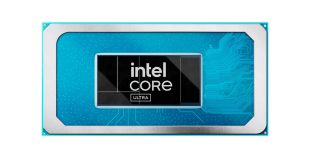Besides the entry-level RTX 3050, Nvidia also had announcements for high-end gamers and enthusiasts during its CES 2022 press conference. Alongside the long rumoured RTX 3090 Ti, Nvidia introduced the RTX 3080 Ti and 3070 Ti laptop GPUs.
Nvidia hasn't yet specified the RTX 3090 Ti graphics card, but most rumours claim it will feature a fully enabled GA102 GPU, featuring 10752 CUDA cores, 84 RT cores and 336 Tensor cores. The RTX 3090 Ti is expected to feature a 1860MHz boost clock and come with 24GB of GDDR6X memory clocked at 21Gbps across a 384-bit memory bus. Rumours also claim this card will be the first to use the new 16-pin power connector due to its TDP of 450W. Nvidia states it will unveil more about the new flagship card later this month.
For the laptop segment, Nvidia will be launching the RTX 3080 Ti and 3070 Ti laptop GPUs. Nvidia didn't share the specifications of these GPUs, but we expect both to be based on the GA104 GPU, with different core counts.
The RTX 3080 Ti for laptops will come with 16GB of GDDR6 memory (presumably clocked at 18Gbps), offering enough performance to render most games at 1440p resolution and 120FPS. Laptops featuring this GPU will start at $2,499 and become available starting February 1st.
As for the RTX 3070 Ti, Nvidia states it will offer 70% more performance than an RTX 2070 Super, targeting gaming at 100FPS on 1440p displays. Like the RTX 3080 Ti, the first laptops featuring this GPU are expected to come out on February 1st, but at a more attractive price point, starting at $1,499.
KitGuru says: We have little information on technical specifications at this time, but with launch dates not being too far away, we won't have to wait long to learn more about these new GPUs.
 KitGuru KitGuru.net – Tech News | Hardware News | Hardware Reviews | IOS | Mobile | Gaming | Graphics Cards
KitGuru KitGuru.net – Tech News | Hardware News | Hardware Reviews | IOS | Mobile | Gaming | Graphics Cards





